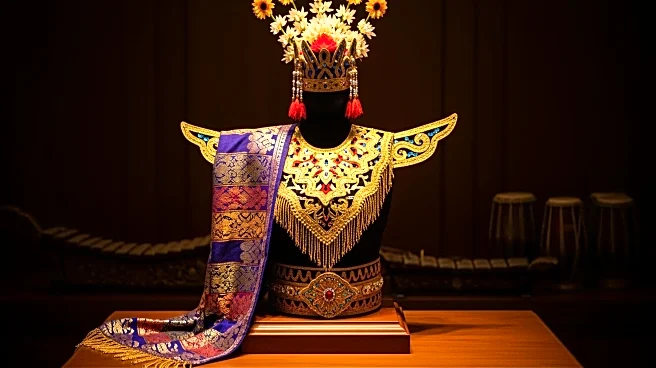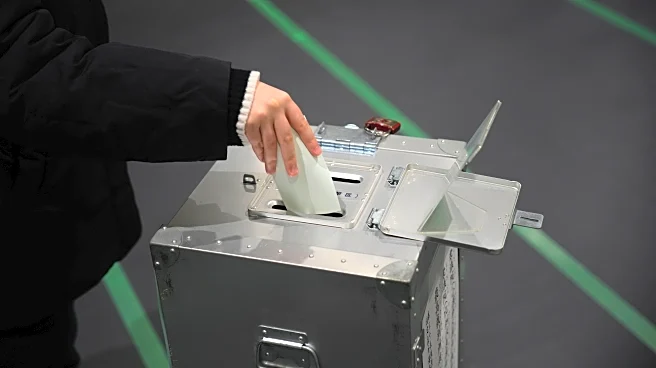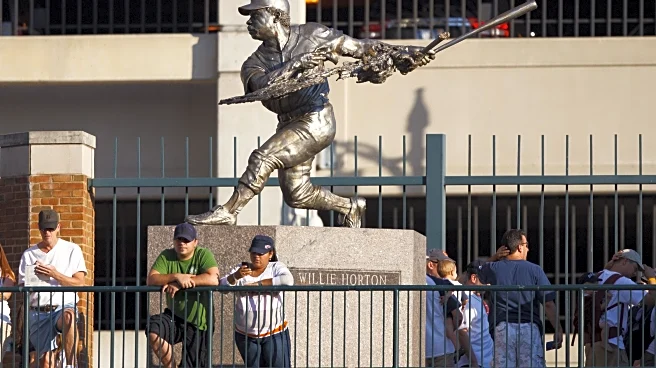What's Happening?
President Trump arrived in Kuala Lumpur, Malaysia, marking the start of his Asian tour. Upon arrival, he participated in a cultural dance with native performers, showcasing the diverse ethnicities of Malaysia, including indigenous people from Borneo,
Malays, Chinese, and Indians. The event took place on the airport tarmac near Air Force One, with Malaysian Prime Minister Anwar Ibrahim joining in the festivities. This visit is part of a five-day mission aimed at strengthening America's diplomatic and trade relations in Asia. Trump is scheduled to meet with Japanese Prime Minister Sanae Takaichi in Tokyo and Chinese President Xi Jinping in South Korea, with a potential meeting with North Korea's Kim Jong Un along the Demilitarized Zone.
Why It's Important?
President Trump's tour of Asia is significant as it aims to bolster the United States' diplomatic and trade relationships in the region. Strengthening ties with key Asian countries like Japan, China, and potentially North Korea could have substantial implications for U.S. foreign policy and economic interests. The tour may lead to new trade agreements or reinforce existing ones, impacting industries reliant on international trade. Additionally, Trump's engagement in cultural activities highlights the importance of soft diplomacy in fostering international relations, potentially easing tensions and promoting mutual understanding between nations.
What's Next?
Following his visit to Malaysia, President Trump will continue his tour in Asia, with scheduled meetings in Japan and South Korea. These meetings could result in discussions on trade agreements, security issues, and diplomatic strategies. The potential meeting with North Korea's Kim Jong Un could be pivotal in addressing ongoing tensions and nuclear concerns. Stakeholders, including political leaders and businesses, will be closely monitoring the outcomes of these meetings, as they may influence future U.S. foreign policy and economic strategies in the region.
Beyond the Headlines
President Trump's participation in cultural activities during his tour underscores the role of cultural diplomacy in international relations. Engaging with local traditions can enhance mutual respect and understanding, which are crucial for successful diplomatic engagements. This approach may also influence how other nations perceive the U.S., potentially leading to more collaborative and less adversarial relationships. Long-term, such cultural exchanges could contribute to a more stable geopolitical environment in Asia.
















